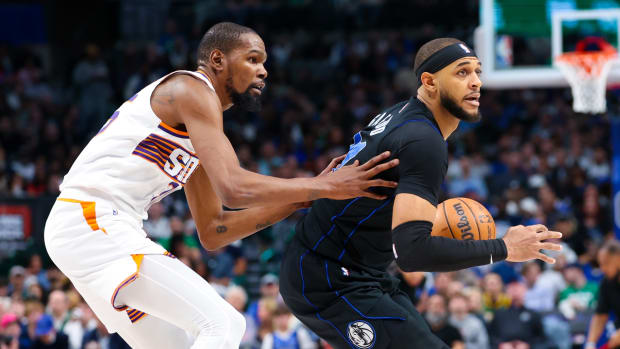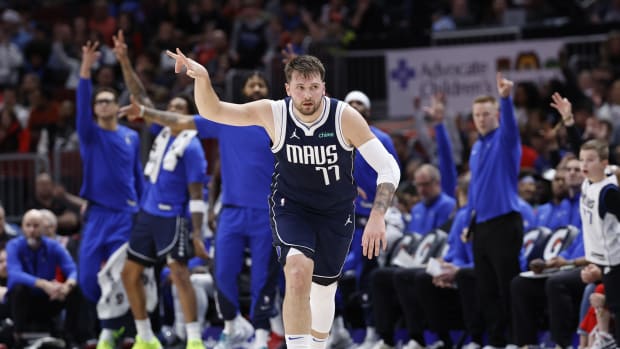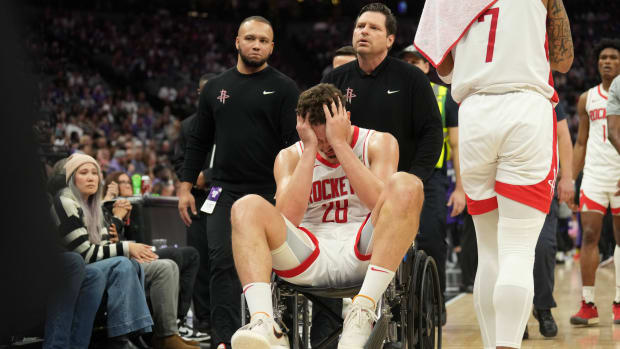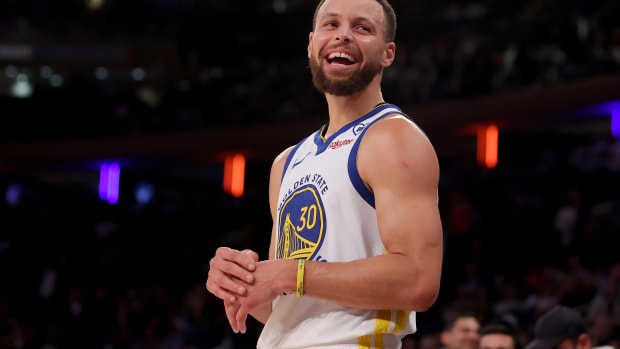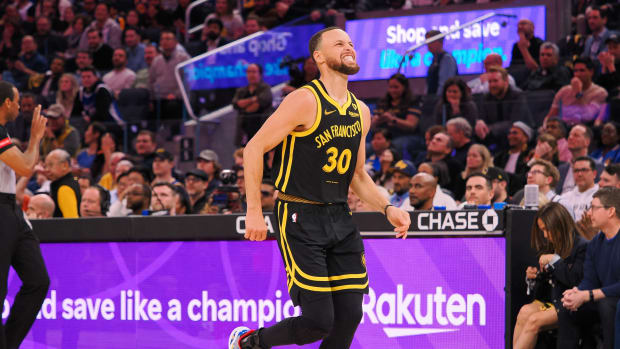How JaVale McGee's Contract Sinks Mavs Trade Deadline Outlook
The need that the Dallas Mavericks face to upgrade the supporting cast around Luka Doncic has become a common talking. As the Feb. 9 deadline looms, many have speculated about possible trade outcomes they could make, perhaps none more than us at DallasBasketball.com.
The million-dollar question the Mavs face right now is: What even are the present options? Let's take a look at a recent example.
The mechanics behind the trade that sent Rui Hachimura to the Los Angeles Lakers are rather simple. The Washington Wizards weren't going to pay him, so they took on Kendrick Nunn's expiring salary as a vessel to add three second-round picks. The Mavs do not have that type of contract at their disposal.
As far as expiring contracts are concerned, the player's impact isn't what tends to matter. As the business of the NBA continues to evolve, free agency is a continually less-fruitful means for adding talent. The way that modern talent acquisition is executed often involves expiring contracts or players signed to well-valued deals to facilitate a transaction.
Right now, the Mavs possess a substantial amount of what could be largely considered as being negatively-valued contracts. Most teams will not want to take on two additional years of Tim Hardaway Jr. or Davis Bertans.
What team will want to be paying JaVale McGee the remainder of his three-year, $17.2 million contract signed last summer? Had McGee's deal been shorter, such as a one-year deal or a two-year deal with a team option, it could be a viable one to move. Instead, it's just simply a bad contract. Even Reggie Bullock, who has a partially guaranteed salary next season, isn't going to have a long list of suitors eager to take on his contract.
The top expiring deal at the Mavs' disposal ahead of the trade deadline is Dwight Powell's near $11.1 million salary. The Mavs may encounter a major problem when entertaining the idea of leveraging Powell's expiring salary: McGee has been unplayable to this point.
Despite Christian Wood and Maxi Kleber being sidelined, the Mavs still aren't giving McGee minutes. There is a clear need to retain a third playable center option, especially with Dallas often deploying two big lineups when Wood was available. How can they afford to move Powell?
While Powell can be appreciated for his hustle and the "little things" that he undoubtedly does, the Mavs clearly felt the need to upgrade at the center position in the offseason. He began the season being out of the team's rotation entirely. Now, they can't afford to not play him.
The Mavs gave Kleber a three-year contract extension worth $33 million before the season began. Powell has been eligible to be extended the entire time. A better question could be: What is Powell's future with the Mavs going to look like without a deal in place?
Without using "inside sources" and instead just analyzing the situation, the plan during the late summer was likely was to leverage Powell as an expiring salary in a trade before the midseason deadline. McGee has just been so ineffective that they are hampered in doing so. There are some hypothetical recourse options that could make it viable, but again, the current trade market is limited in what appears to be viable options.
It becomes all the more complicated in weighing the need to retain Christian Wood, who is set to reach unrestricted free agency barring a contract extension agreement or midseason trade that involves him. With how well Wood has played and how desperate the Mavs are for talent, neither of those options appear to be viable for different reasons.
Making a big swing trade at the midseason deadline becomes complicated when solving for the 30,000-foot view perspective of long-term ramifications. There are more buyers than sellers ahead of the trade deadline for one. Secondly, the Mavs are limited in what draft assets they can offer since the protections for the 2023 first-round pick they owe the Knicks carry through 2025.
Perhaps an even further complicated conundrum. Does a team that's been sinking in their last 10 games in a highly competitive Western Conference want to risk asking the Knicks to lift the protection on the pick? If Doncic was to sustain an unfortunate injury after doing so, the consequences of lifting the protections could be devastating.
The idea of the Mavs making a trade with just the future draft assets at their present disposal raises more questions. How could they outbid more asset rich trade suitors for an enticing player? If they were to pursue a soon-to-be free agent that has more say in their landing spot, is that even worth risking given they are already navigating Wood's pending free agency?
Making smaller moves certainly could benefit the Mavs. They've been linked to Cam Reddish recently, but they have a lot of their second round picks in upcoming years already being sent out. Again, there also isn't a smaller expiring deal that a team would likely be content with acquiring to facilitate a potential transaction.
There aren't a lot of ideal outcomes for the Mavs ahead of the trade deadline, even though taking full advantage of Doncic's elite production in an open Western Conference is surely the preferred outcome. Right now, they are dealing with the consequences of losing Jalen Brunson for nothing and also still paying off the Porzingis trade.
Want the latest in breaking news and insider information on the Dallas Mavericks? Click Here.

